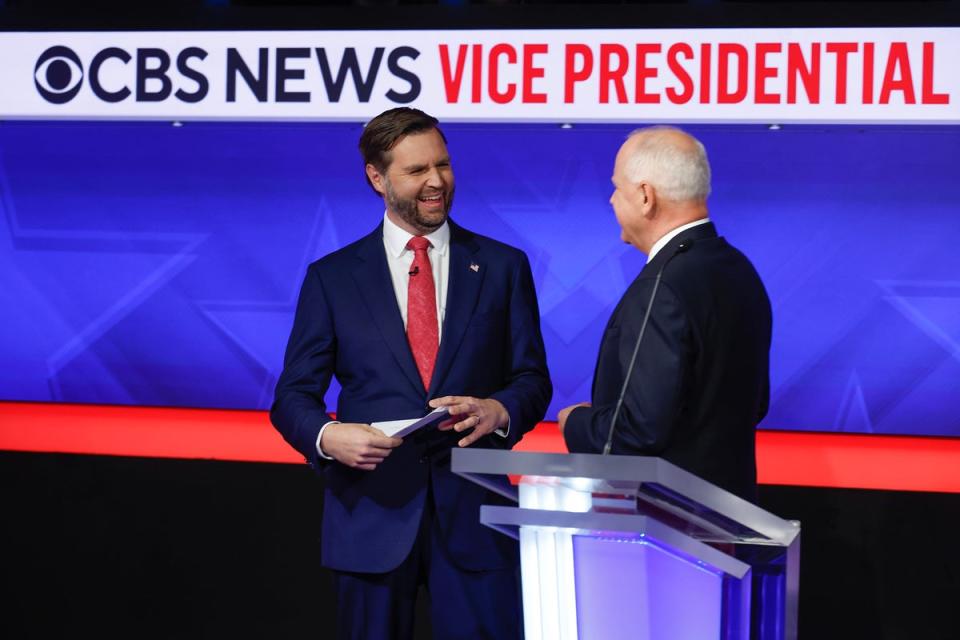JD Vance was asked 5 times if Trump lost the 2020 election. He refused to answer

With only three weeks left before the 2024 presidential election, Donald Trump’s running mate repeatedly refused to answer whether he believes the former president lost the last race.
JD Vance was asked five times by The New York Times within two minutes if he believes Trump lost the 2020 presidential election, but he refused to acknowledge his loss.
When asked about the election results in an hour-long interview with The Times’s Lulu Garcia-Navarro published on Friday, Vance said he was instead “focused on the future” — repeating an answer from a similar question raised during his debate against Democratic rival Tim Walz.
“There’s an obsession here with focusing on 2020,” Vance told Garcia-Navarro. “I’m much more worried about what happened after 2020, which is a wide-open border, groceries that are unaffordable.”
When he was pressed a second time, Vance suggested that Trump would have won if social media companies didn’t “censor” politically damaging stories, despite there being no evidence that restrictions on the contents of a laptop that belonged to President Biden’s son Hunter had altered the outcome.
Asked again, he said he would answer her question with a question of his own.
He then dismissed Garcia-Navarro’s correct assertion that there is no evidence of widespread fraud or corruption that altered 2020’s results as a “slogan.”
“I’m not worried about this slogan that people throw — ‘Well, every court case went this way,’” he said. “I’m talking about something very discrete — a problem of censorship in this country that I do think affected things in 2020.”

He also told The Times that he would not have certified 2020’s results.
In the Vance-Walz debate, the Republican senator from Ohio twice refused to answer whether Trump lost in 2020, a dodge that Walz called a “damning nonanswer.
Democrats have pointed to his statements as evidence that the potential future vice president could enable Trump’s antidemocratic impulses, and do what former Vice President Mike Pence refused to when he refuted Trump’s attempts to unlawfully block the certification of 2020’s election results.
Walz called his opponent a “coward” for refusing to admit Trump’s loss.
In his interview with The Times, Vance said he would “commit to a peaceful transfer of power” in 2024 but hedged on whether he and Trump would accept the outcome, if they lose.
He said they would “respect the results” but echoed the conditions that Trump has repeatedly stated throughout his 2024 campaign.
“If there are problems, of course, in the same way that Democrats protested in 2004 and Donald Trump raised issues in 2020, we’re going to make sure that this election counts,” he said. “That every legal ballot is counted. We’ve filed almost a hundred lawsuits at the [Republican National Committee] to try to ensure that every legal ballot is counted.”
Right-wing legal groups across the country have launched legal battles to challenge mail-in voting rules and voter eligibility — underscoring how far the former president’s allies will go, down to the local level, to contest the results of an election he could lose.
Vance has “proven five more times that he will always put Donald Trump’s dangerous election conspiracy theories ahead of our Constitution and the rule of law,” according to Democratic National Committee rapid response director Alex Floyd.
“Even Vance knows that Trump lost in 2020 by more than 7 million votes, but protecting Trump’s attempts to subvert the will of the American people is more important to Vance than protecting our democracy,” he said in a statement following The Times interview.